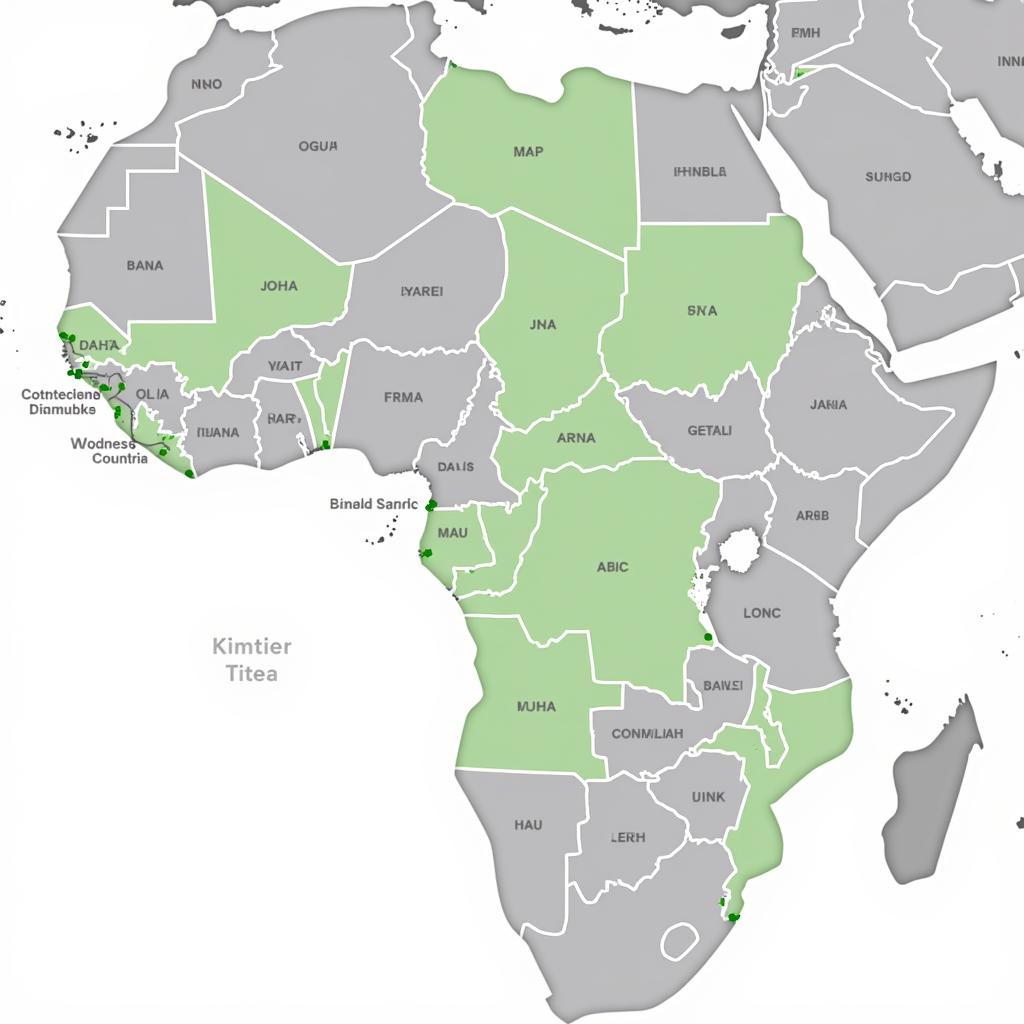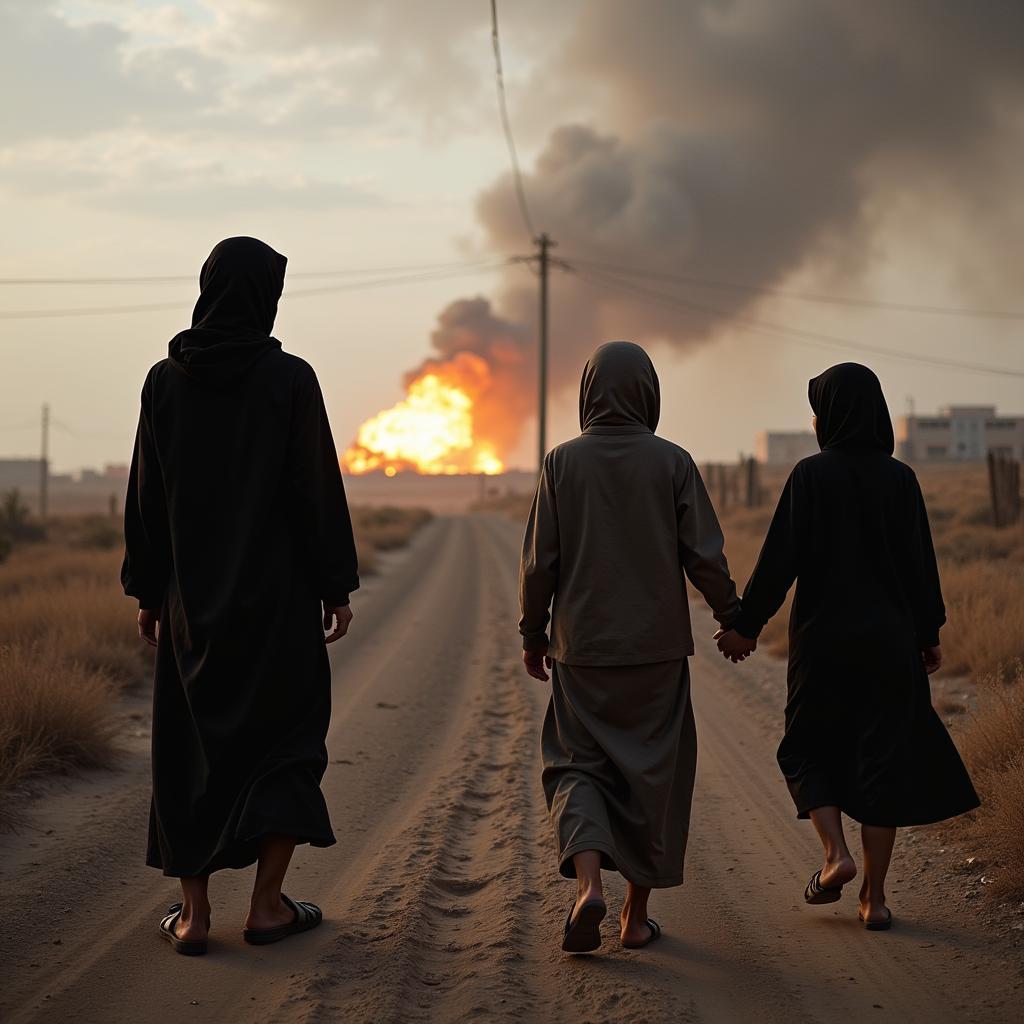African Countries Affected by ISIS
The specter of terrorism, particularly from groups like ISIS, has cast a long shadow over various parts of the globe, and Africa is no exception. While ISIS might be more commonly associated with the Middle East, the group and its affiliates have unfortunately gained footholds in certain African countries, impacting the lives of countless individuals and posing significant challenges to peace and stability. This article will delve into the African Countries Affected By Isis, examining the group’s presence, activities, and the wider implications for these nations.
 Map of ISIS presence in Africa
Map of ISIS presence in Africa
The Rise of ISIS in Africa
Although ISIS originated in the Middle East, its ideology of violence and extremism found fertile ground in parts of Africa grappling with pre-existing conflicts, poverty, weak governance, and marginalization. The group strategically exploited these vulnerabilities, offering a sense of belonging and purpose to disillusioned youth and marginalized communities.
 Image of young people being recruited by ISIS
Image of young people being recruited by ISIS
One of the key turning points was the rise of Boko Haram in Nigeria. Initially a local insurgency, Boko Haram pledged allegiance to ISIS in 2015, becoming its most prominent affiliate in Africa. This alliance provided Boko Haram with increased resources, training, and international notoriety, enabling the group to escalate its campaign of violence and terror.
Key African Countries Affected by ISIS
While ISIS’s presence might not be uniform across the continent, several African countries have been significantly impacted by the group and its affiliates:
- Nigeria: As the epicenter of Boko Haram’s reign of terror, Nigeria has borne the brunt of ISIS’s presence in Africa. The group’s brutal tactics, including kidnappings, bombings, and attacks on civilians, have resulted in widespread displacement, a devastating humanitarian crisis, and a climate of fear.
- Mozambique: Since 2017, an ISIS-affiliated insurgency has plagued the northern Cabo Delgado province, a region rich in natural gas reserves. The insurgents’ brutal attacks on villages, beheadings, and displacement of civilians have raised serious concerns about the group’s growing influence in the region.
- Somalia: The al-Shabaab militant group, primarily active in Somalia, has longstanding ties with al-Qaeda but has also expressed solidarity with ISIS. While not formally an ISIS province, al-Shabaab’s shared ideology and similar tactics make it a potent force with the potential to further destabilize the Horn of Africa.
The Impact of ISIS on African Countries
The rise of ISIS-linked groups in Africa has had a profound and devastating impact on the affected countries:
- Humanitarian Crisis: ISIS-related violence has displaced millions of people across the continent, creating a dire humanitarian situation. Many have lost their homes, livelihoods, and access to basic necessities like food, water, and healthcare.
- Economic Devastation: The insecurity and instability caused by ISIS have crippled economies, discouraged investment, and hindered development. The tourism industry, a vital source of income for many countries, has also suffered significantly.
- Political Instability: The presence of ISIS has exacerbated existing political tensions, fueled ethnic and religious divisions, and undermined governance. This instability creates a vicious cycle, making it even more challenging to address the root causes of extremism.
Combating ISIS and Promoting Peace
 Image of African Union soldiers on a peacekeeping mission
Image of African Union soldiers on a peacekeeping mission
Addressing the complex challenge of ISIS in Africa requires a multi-faceted approach:
- Strengthening Governance: Supporting good governance, promoting transparency, and tackling corruption are crucial steps in addressing the root causes of extremism, such as poverty, inequality, and lack of opportunity.
- Empowering Local Communities: Engaging local communities, building trust, and fostering dialogue are essential for countering extremist narratives and promoting resilience against radicalization.
- Regional and International Cooperation: Sharing intelligence, coordinating efforts, and providing support to affected countries are critical for effectively combating terrorism and addressing the humanitarian crisis.
The rise of ISIS in Africa is a stark reminder of the interconnectedness of global security challenges and the urgent need for collaborative action. By addressing the underlying factors that contribute to extremism and working together, the international community can help African nations build a more peaceful and prosperous future.

